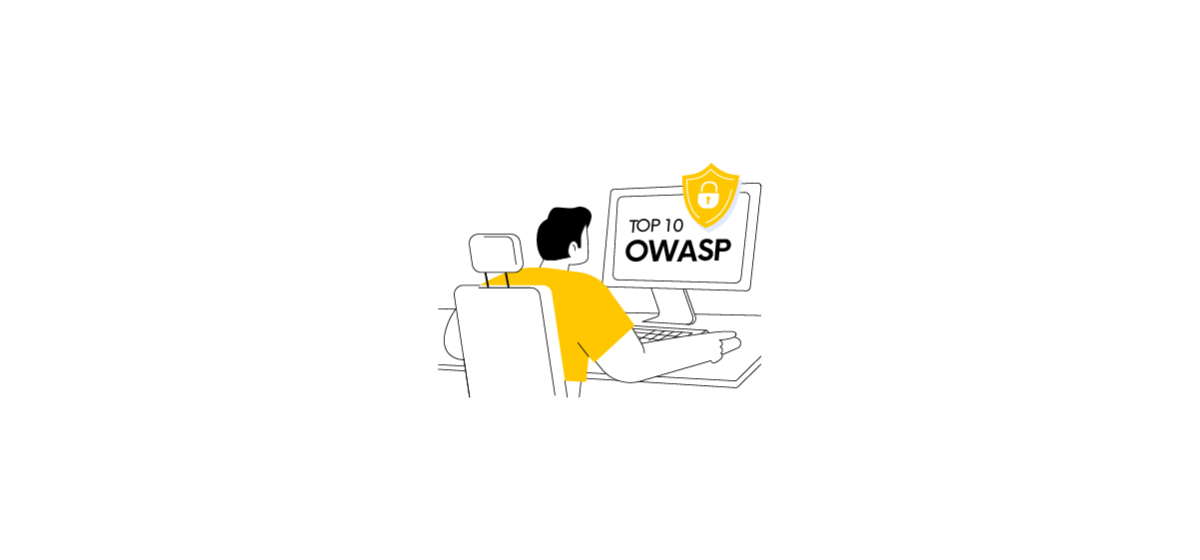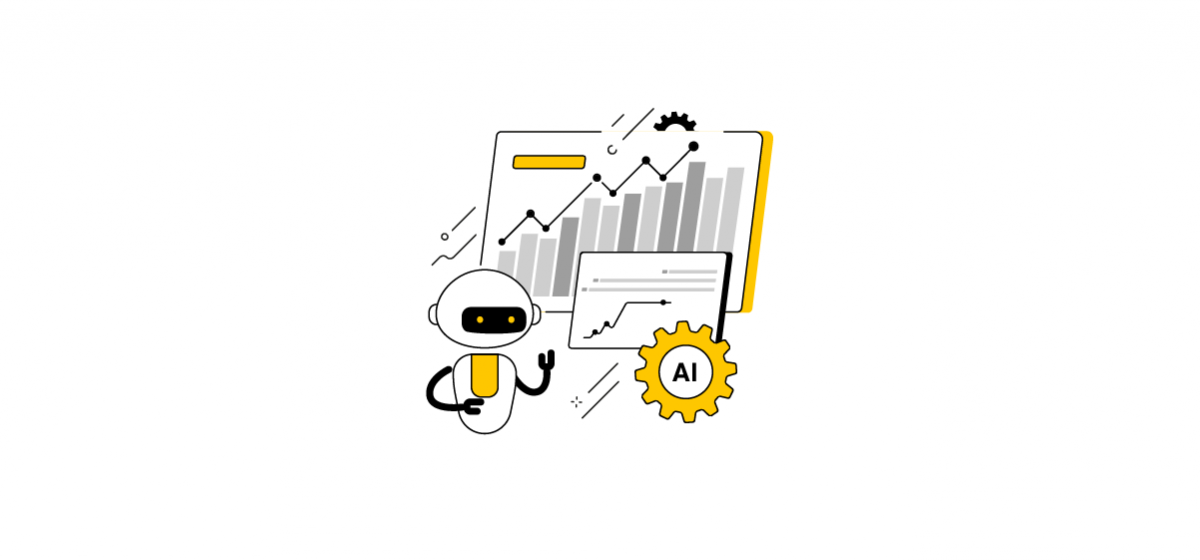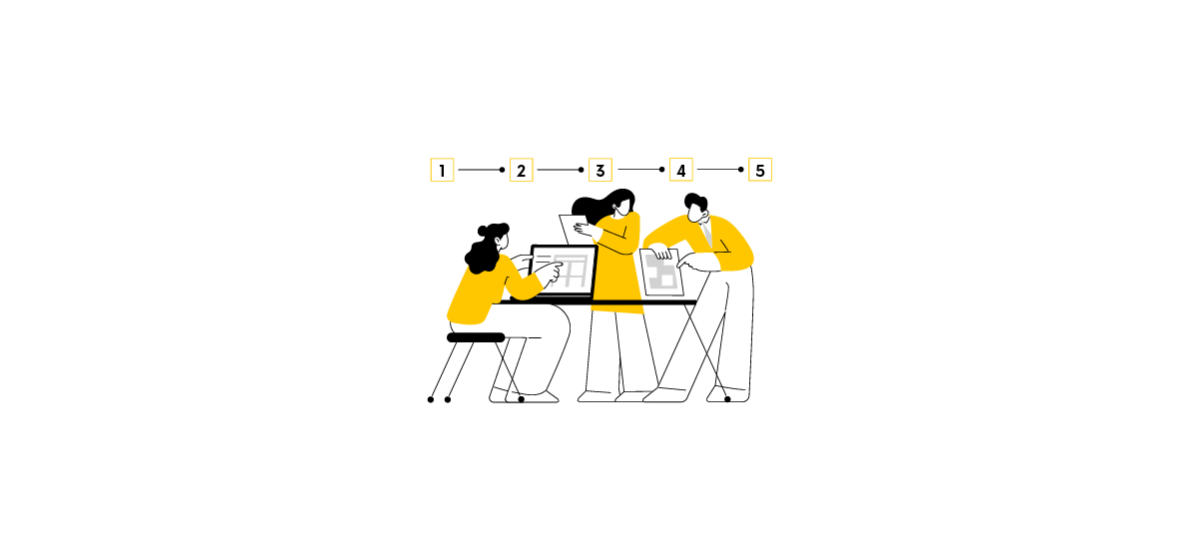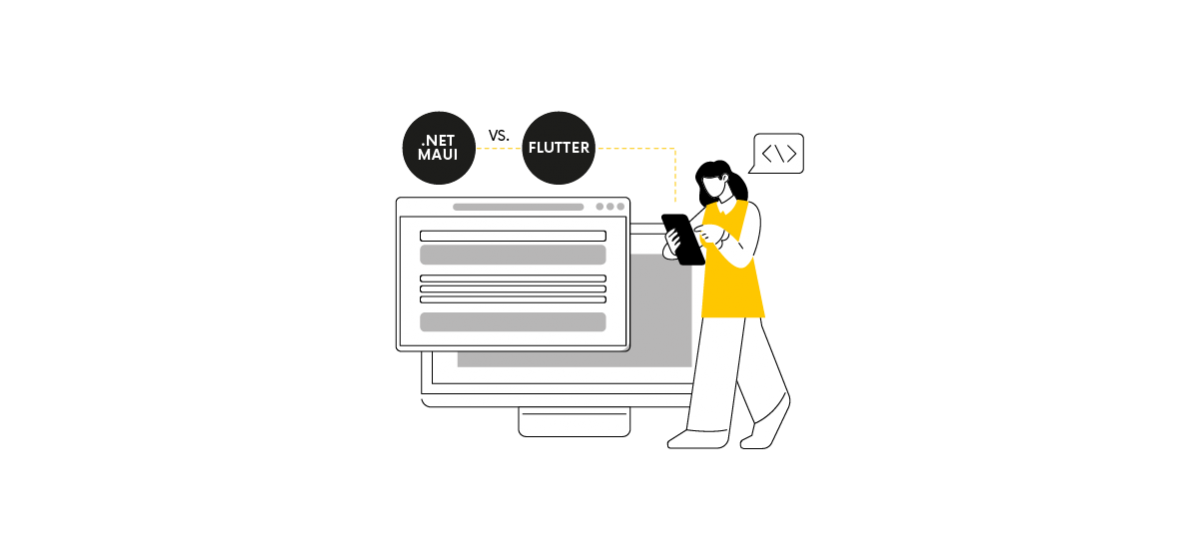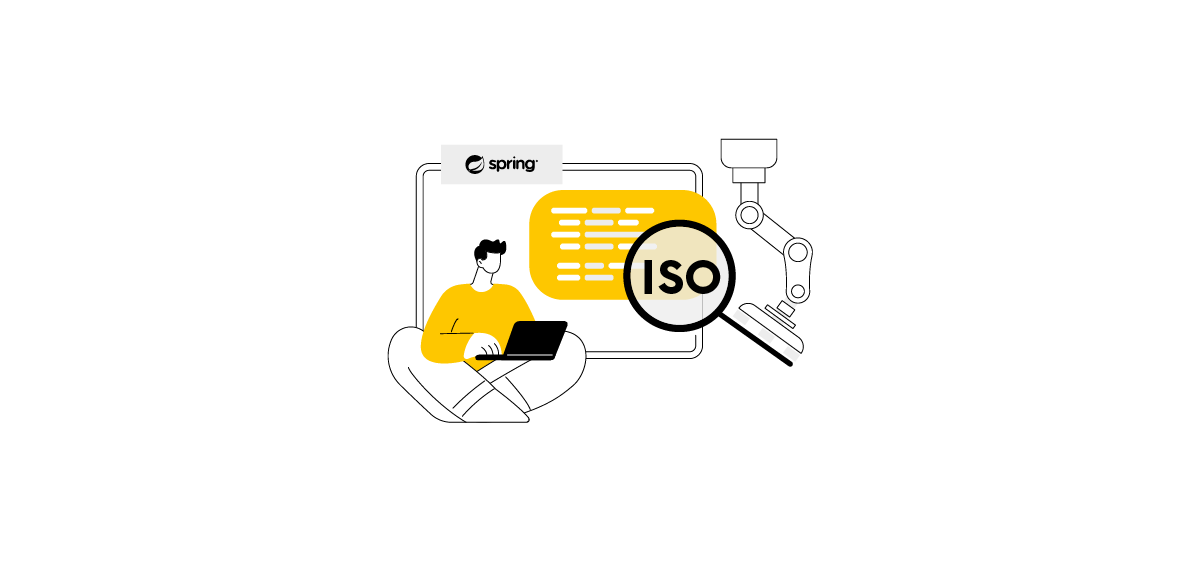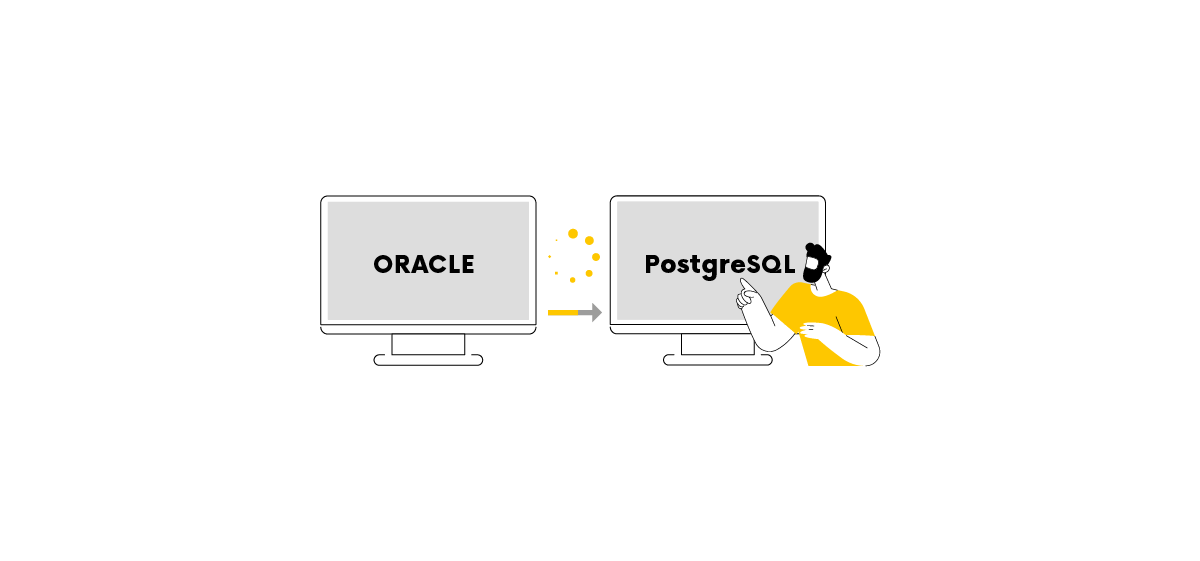
If you are active in the developer community, you may have heard more than once that PHP is an outdated scripting language that no longer has a place in the IT industry in 2023. However, data shows that around 77.4 per cent of websites still use PHP, which means the technology is alive and well. It also plays an essential role in the WordPress ecosystem because the entire CMS is built in PHP.
In this article, we discuss two questions: why can it be stated with certainty that PHP is a modern, continuously evolving scripting language? Secondly, how does PHP support stable and secure web development?
Table of Contents
PHP popularity in 2023
PHP is mainly used to develop websites and the server side of mobile applications. According to April 2023 statistics published by W3Tech, PHP is used by 77.4% of server-side websites.
Although we often hear about the emergence of new programming languages aimed at programming web applications, PHP is still the most popular technology; it is widely used for websites based on content management systems, such as WordPress, Joomla, Moodle, and many others.
Some of the most popular websites around the world are built on PHP. These include Facebook, Yahoo, Spotify, Wikipedia, Slack, Tumblr, WhatsApp, Zoom, and more.
What makes PHP seem outdated?
One problem we are currently facing is that many companies, developers, and hosts need to catch up on supporting the latest versions of PHP. The use of outdated versions creates the perception that this technology is ‘obsolete’, although this is absolutely not the case. There are several reasons why it is extremely important to use the latest version of PHP, not only for improved security but also for better performance and support.
Each major version of PHP is usually fully supported for two years after its release. During this time, bugs and security issues are regularly fixed. Older PHP versions, currently those up to and including 7.4, are not supported, which can cause security vulnerabilities.
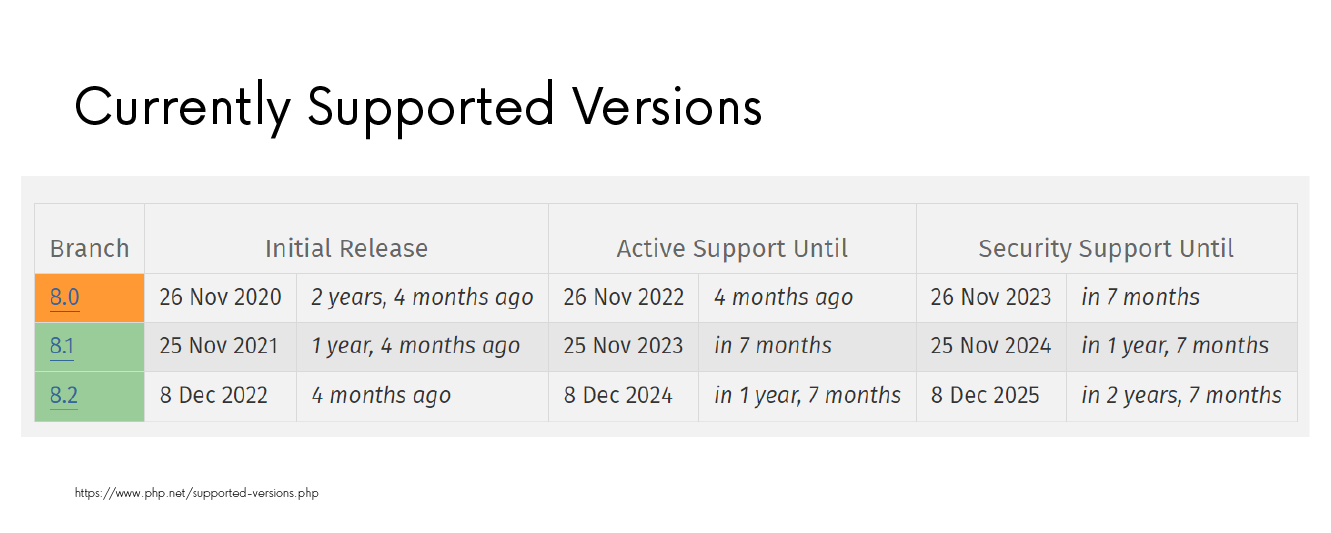 Unfortunately, according to WordPress statistics from 2023, 53.7% of WordPress users still use PHP 7.4, and many others use lower versions. The number of users currently using PHP versions that are not supported as of November 2022 could be as high as 84%.?
Unfortunately, according to WordPress statistics from 2023, 53.7% of WordPress users still use PHP 7.4, and many others use lower versions. The number of users currently using PHP versions that are not supported as of November 2022 could be as high as 84%.?
“84% of users are currently using versions of PHP that are no longer supported as of November 2022.”
Why is the adoption of new PHP versions so slow?
There are several possible reasons for the slow adoption of newer versions of PHP:
- Compatibility with older applications
Sometimes the challenge is that applications are written in an older version of PHP and require code updates or rewrites – and reworking websites, themes, or plugins takes time and effort.
- Compatibility with third-party libraries
Some third-party libraries or frameworks may not be compatible with the latest version of PHP, slowing down the adoption of the new version. Developers must either wait for these libraries to be updated or find another solution to upgrade to the latest version of PHP.
- Costs
A developer or agency may be stuck between a rock and a hard place when they want to upgrade an application to a new PHP version, but the client is unaware of how crucial this is and does not want to spend financial resources on the upgrade.
- Possible errors
Some developers are concerned about bugs or stability issues when updating. They may not be aware of the performance improvements, features, and security offered by each new release.
While the above factors may delay your upgrade to a newer version of PHP, it is still worthwhile not giving up on your approach to the process. By understanding how outdated, unsupported versions of PHP can slow down your site and put you at risk of attacks, you will see the importance of applying the necessary upgrade. You can read more about the need to regularly update your system in this article. The good news, however, is that PHP is evolving rapidly and still has huge potential.
Dynamic PHP code development
PHP is no longer just a language – it has become a platform with its own ecosystem of frameworks, libraries, and tools to help developers be more productive. Regarded as one of the most user-friendly programming languages, PHP introduces huge changes with each update. You can read about the role of PHP updates ? in this article.
Version seven of this most popular language for programming the back-end of web applications has been available since 2015, and version eight since 2020. The gap between PHP 7.3 and PHP 8 is huge. PHP 8.0 has revolutionised the way developers work, thanks to the JIT (Just In Time) mechanism. This involves skipping any code that will not affect the outcome of the program in a given call. PHP 8.1, rolled out in November 2021, provided users with improved performance, syntax, and security. PHP 8 allows you to write concise code and build more applications with many changes and improvements compared to earlier RFC documents. PHP 8.0 and 8.1 introduced many modern PHP features, such as named arguments, expression matching, the nullsafe operator, improvements in error handling, and many more. PHP 8.2.4, the latest version, is available as of 16 March 2023.
Benefits of building or updating your website with the latest version of PHP
1. Security
The latest versions of PHP contain security patches that fix vulnerabilities and protect your site from potential attacks. Older versions may be more susceptible to security breaches. If you do not upgrade to PHP 8.2, you risk exposing your site to unpatched security vulnerabilities. These security issues include attacks such as XSS attacks, CSRF, SQL injection, file inclusion, session hijacking, and many more.
2. Performance
The PHP language uses its own memory and performs well in terms of speed, especially when using the latest version. Each newer version of PHP reduces loading times through improvements to internal code and reduced memory usage. With the PHP 8 update, there are significant performance improvements. For example, while PHP 7.4 allowed the system to make 3 times more REST API requests per second than PHP 5.6, PHP 8 is almost 4 times better.
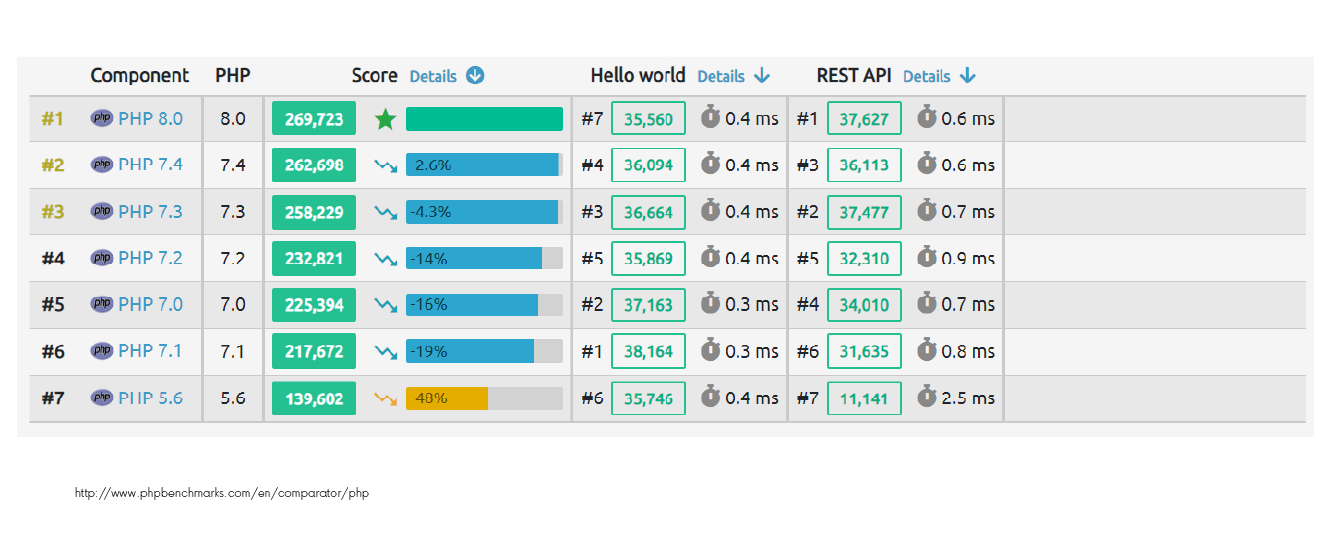
3. Compatibility
As new tools become available, they may not be compatible with older versions of PHP. Updating the language to the latest version will help ensure that your site is compatible with the latest versions of frameworks and libraries. And the benefits of updating the tools you use are similar to those of updating the language itself.
4. Bug fixes
Like any software, PHP can have bugs that need to be fixed. Newer versions of PHP include fixes to help improve the stability and functionality of your site.
5. Support
PHP is an open-source language, which means that it is maintained and updated by the development community. There are plenty of tutorials, FAQs, and tips to help new PHP developers continue to learn the ins and outs of regular updates.
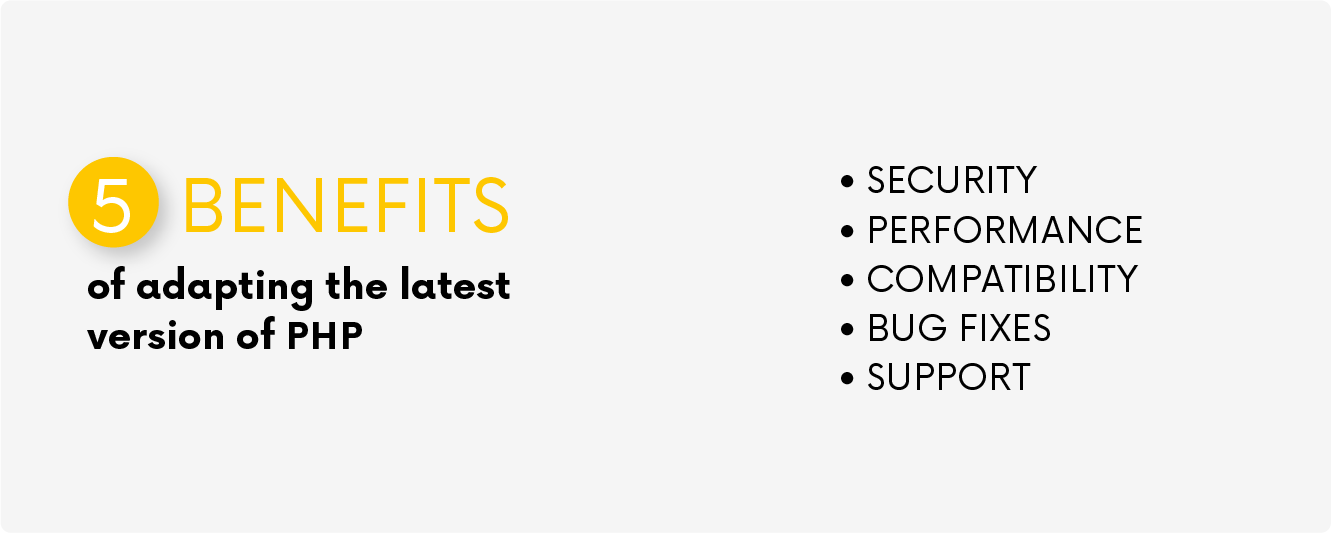
Check that you are using the latest version of PHP
There are various ways to check which version of PHP is currently installed on a system, but these are the most common:
1. WordPress: If you are using WordPress 5.0 or later, you can see the PHP version in the ‘Site Status’ tool.
2. Using the PHP command line interface (CLI): Open a terminal or command line and type the following command:

This will display the PHP version installed on your system.
3. Create a PHP information file: Create a new file named phpinfo.php in the root directory of your web server (e.g. /var/www/html/ for Apache). Add the following code to the file:

Save the file and navigate to it in your web browser by typing https://vmsoftwarehouse.com/phpinfo.php in the address bar. This will bring up a page containing detailed information about your PHP installation, including the version number.
4. Check the server configuration file: The location of the configuration file may vary depending on your system and web server software, but it is usually located in the /etc directory. Look for a file called php.ini and open it with a text editor. Look for the line that starts with PHP Version to find out your PHP version.
The above methods should help you determine the current version of PHP installed on your system.
Get help to build or update your site
PHP is platform-independent, which means it works on Mac OS, Windows, and Linux, as well as most web browsers and major web servers, allowing it to be deployed easily on different systems and platforms. Moreover, because so many websites are written in PHP, it is easier to update them in the same language than to rewrite everything in another.
This is why PHP continues to exist and thrive, even if some younger developers may have a personal preference for another language, such as JS or Python. The legacy effect also means that it is usually easier to find a PHP developer for your project.
Ultimately, your chosen language will depend on what you are trying to build, and which features you prioritize for your specific project. At VM, our engineers have a wide range of skills in different programming languages, so if you want to see what benefits they can bring to your organization, contact us!







